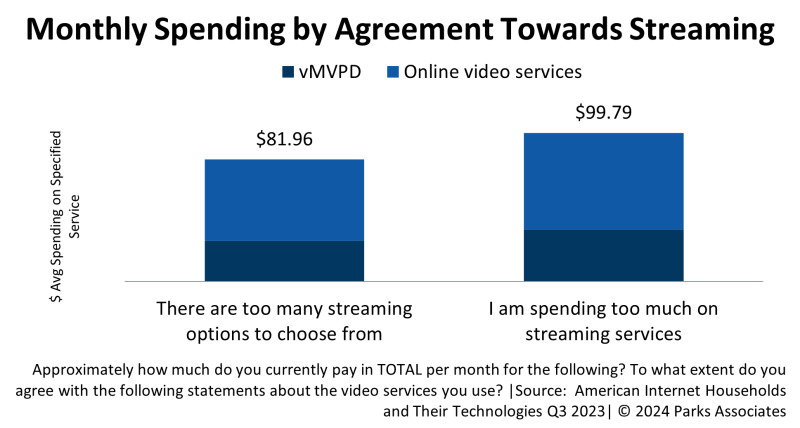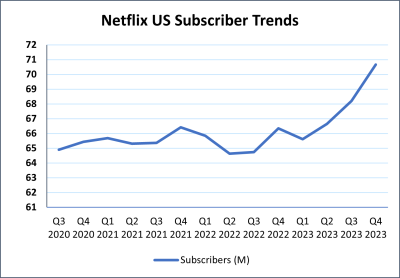
Netflix customers living in Florida are now required to pay an extra 5.07% on top of their usual bill according to the new Communications Services Tax (CST).
This extra charge began February 15, 2024, with Netflix notifying customers of the change in advance. The Florida communications services tax includes state tax and gross receipts taxes. The total tax rate for the Florida communications services tax is 7.44%.
The new tax is added to each sale of “communications services” in the state, including but not limited to cable and satellite television, video and music streaming, telephone services, and mobile communications services. According to the rules of the CST in Florida, Netflix subscriptions are subject to both local and state tax.
Florida is not the only area to add extra fees to communications services. Chicago residents have been taxed for streaming services since 2015. The Chicago “Amusement Tax” charges an extra 9% to streaming services, in addition to state and local tax for entertainment services such as streaming, movie tickets, and admission to live events. Maine is also working to add taxes to streaming services.
Florida and Chicago residents will be especially disappointed to hear that Netflix recently hinted at yet another price hike in fall 2024 for those subscribing to the company’s premium plan. This is not confirmed but if true, will be disheartening to many consumers.

Virtually every streaming service raised prices in 2023, forcing many households to think more heavily on how much money they can allocate to streaming. More taxes and price increases will put added pressure on consumers’ wallets. Parks Associates data from Q3 2023 shows that households subscribe to 5.8 services on average, and 29% subscribe to more than eight. About an equal number of households agree and disagree that they are spending too much on streaming services - 41% agree the expense is too high while 40% disagree.
In response to slowed subscriber growth and increased competition, Netflix has implemented price increases, a restriction on password sharing, more casual gaming, stronger commerce efforts and a cheaper AVOD service to generate more revenue. Netflix, like other media companies, is seeking to increase streaming profits, and advertising is proving to be a crucial factor in achieving this goal.
According to the Parks Associates consumer survey on the Viewer Journey, on average, across all OTT subscriptions, consumers who believe there are too many options spend around $82 per month. Those who strongly agree that they spend too much on streaming also spend more than average on their subscriptions by about $20 more per month.

Whether the price rise is due to taxes and fees or to pay for more content, the result is an increased cost for the consumer.
Netflix sent an email to all Florida subscribers reading:
- “We hope you’re enjoying everything Netflix has to offer. Starting on Feb. 15, 2024, additional state services tax will be applied to your monthly subscription. You can read more about how taxes affect your Netflix membership here,” the email said.
- “Tax rates can vary by country, state, territory, and city, and are based on the applicable rate at the time of your Netflix charge. These amounts can change over time with local tax requirements.”
- “Your monthly Netflix bill is going to go up, the increase comes from Florida’s communication services tax, which will apply an additional 7.44% sales tax to your Netflix subscription. The tax applies to all communication-based services throughout the state.
Parks Associates research finds Netflix has an exceptionally low churn rate compared to other services. Parks Associates measurement of churn, averaged across all OTT services stands at about 50%. Meaning, 50% of a streaming service’s user base will sign up and quit within any given year. Netflix sees about 9% churn rates, which remains relatively low compared to the rest of the industry. During the height of the pandemic Netflix hit an industry low in churn with only 5% in Q1 2020.
Consumers who subscribe to Netflix rarely churn; some may have switched to a lower tier but did not quit the service all together. According to Parks Associates Q3 2023 survey, 49% of Netflix customers

think the service is worth the price. When costs rise, it is likely that households satisfied with the price will decrease. At the same time, 54% of subscribers report they keep their subscription to Netflix because they can typically find something new to watch. Among the major streaming providers, Netflix has the highest percentage of those who can usually find something interesting to watch.
According to the Parks Associates Streaming Video Tracker, Netflix is the second largest SVOD service in the United States, behind Amazon Prime Video. Since the inception of its DVD business, Netflix has continually reinvented its operations (no more DVD’s), pricing structure and content initiatives to maintain its position as one of the top SVOD’s in the streaming industry.

This tax does apply to all streaming services in Florida and the real question is if it will cause consumers to give pause before adding another service to their streaming stack. While consumers in Florida and other areas may not be happy about 5-9% taxes on their Netflix service, it is unlikely that it will have much of an effect on churn for the service.
Eric Sorensen is a Research Director at Parks Associates. He is an accomplished sports and news media executive with extensive knowledge in developing live streaming and Digital Media strategies. Eric spent over 15 years at ESPN helping pioneer the launch of WatchESPN, The Longhorn Network, and SEC digital network. Prior to joining Parks Associates Eric served as Director of Advertising and Digital and Social Content for the Houston Astros.
Parks Associates covers the entertainment and streaming industry extensively in its research, along with other key markets. For more information visit www.parksassociates.com
Industry Voices are opinion columns written by outside contributors—often industry experts or analysts—who are invited to the conversation by StreamTV Insider staff. They do not represent the opinions of StreamTV Insider.